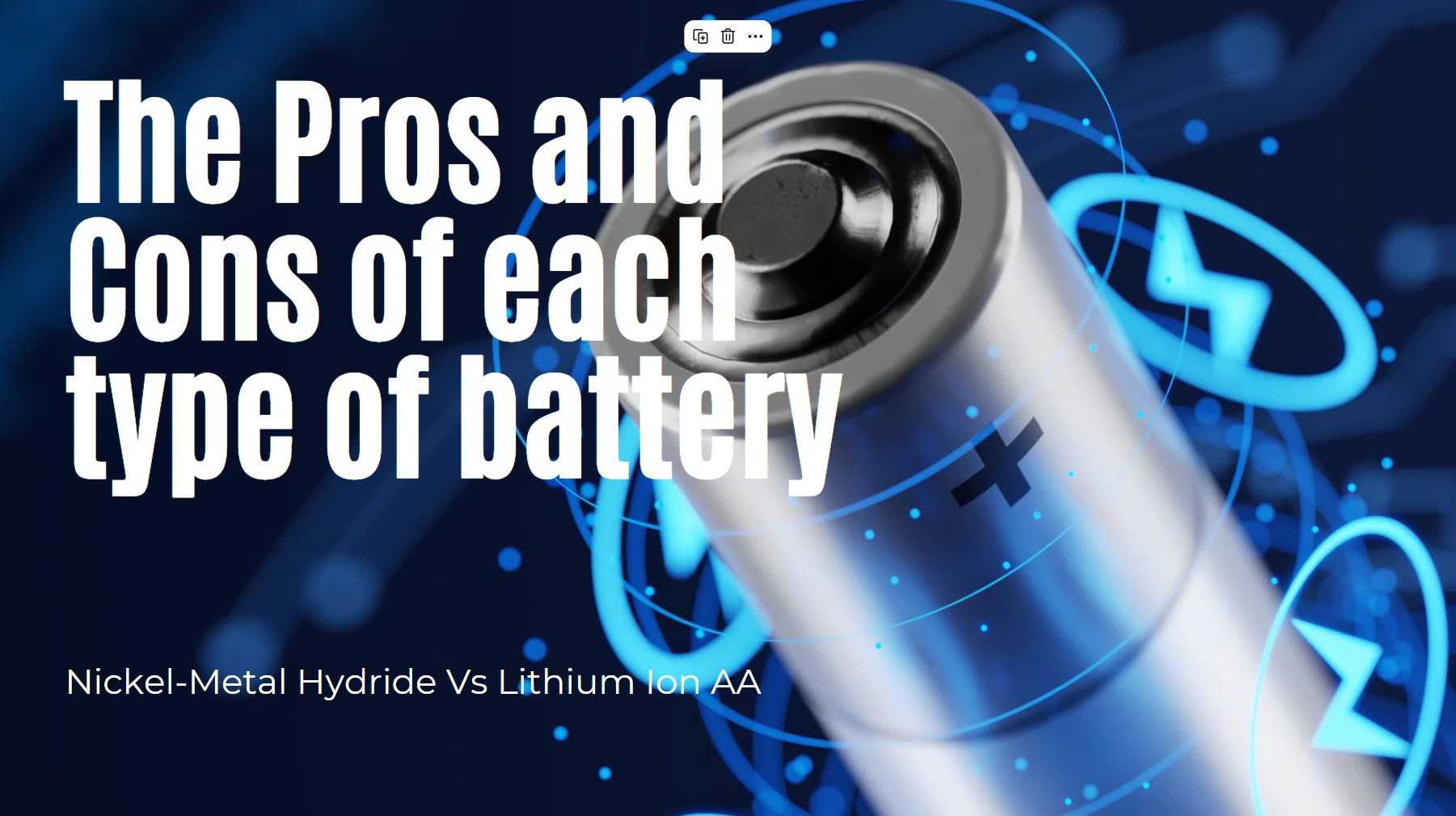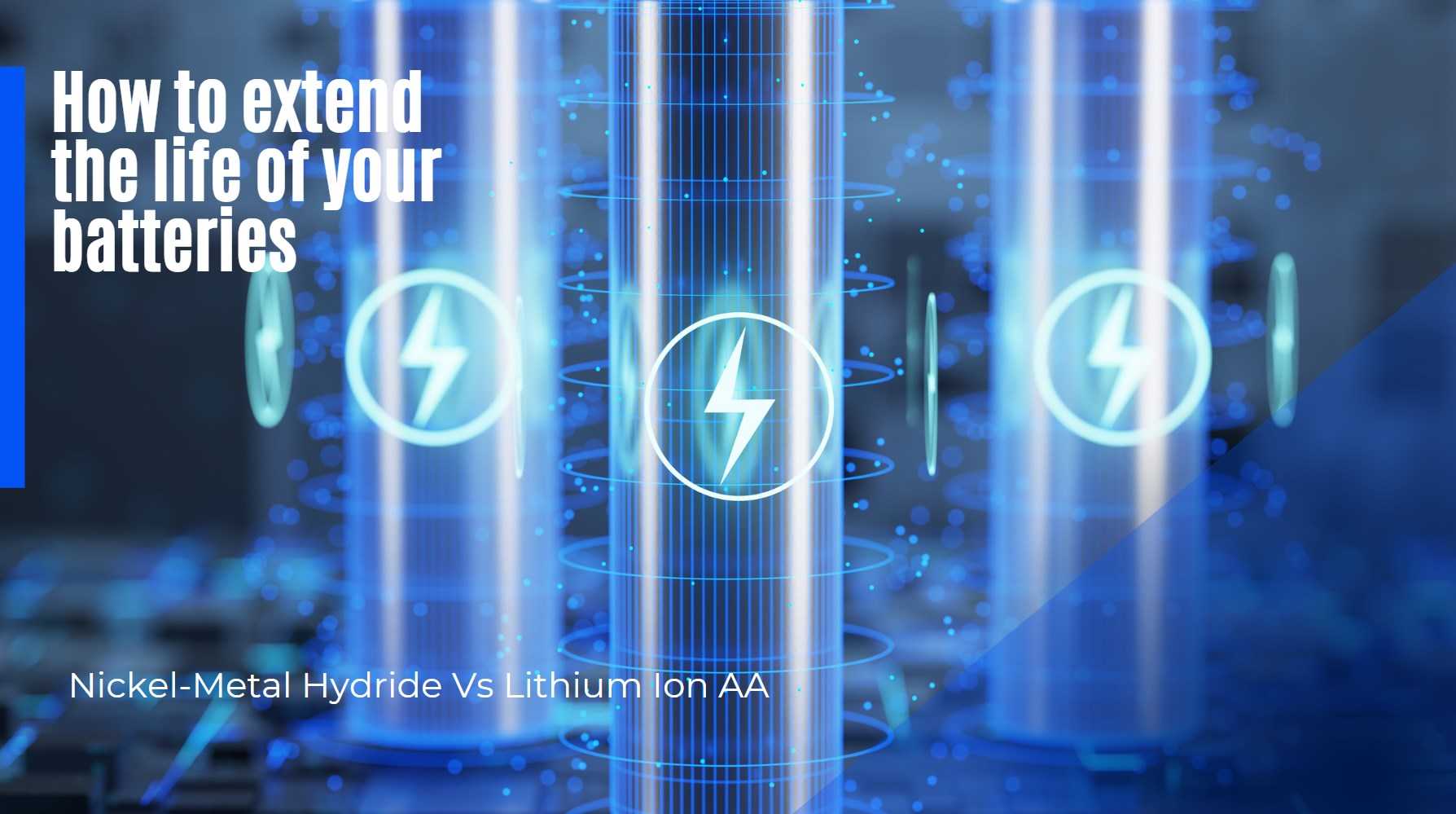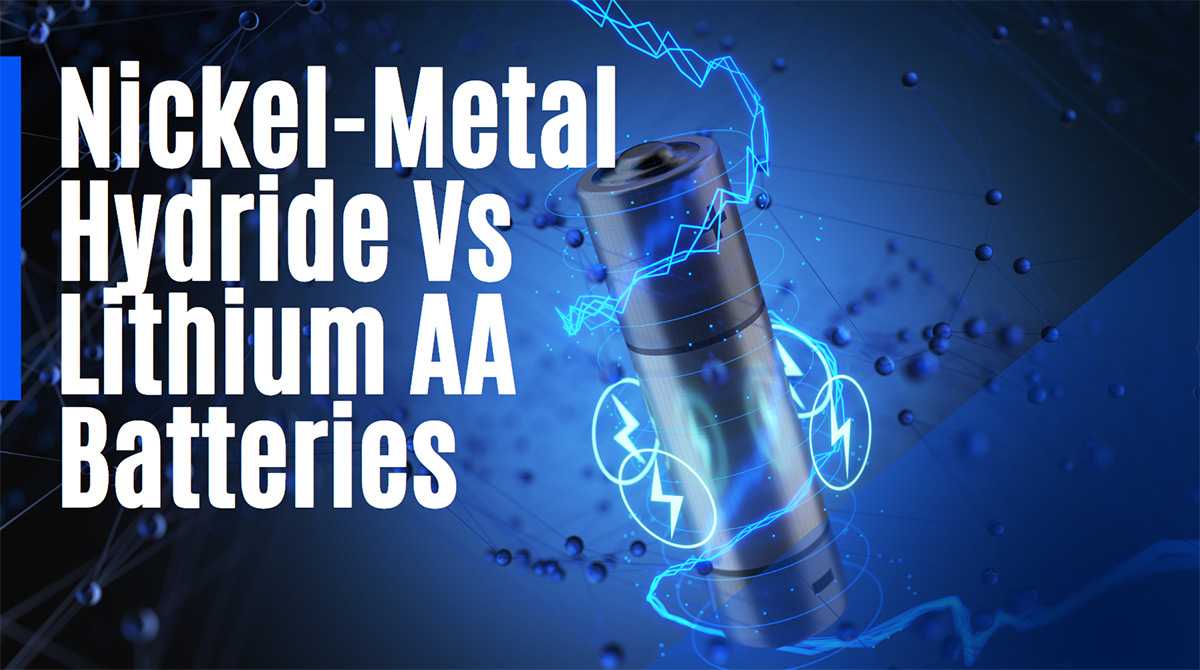In the realm of portable power solutions, Nickel-Metal Hydride (NiMH) and Lithium Ion (Li-Ion) AA batteries stand as prominent choices, each offering unique advantages suited to varying consumer needs. This detailed comparison aims to elucidate their characteristics, applications, and optimal usage scenarios to empower your decision-making process.
Understanding NiMH and Li-Ion AA Batteries
Nickel-Metal Hydride (NiMH) batteries are renowned for their affordability and robust rechargeability. They excel in applications requiring frequent recharges, such as digital cameras and handheld gaming devices. In contrast, Lithium Ion (Li-Ion) batteries leverage advanced chemistry to deliver higher energy densities, translating to longer operational durations per charge cycle. This makes them ideal for devices demanding prolonged usage, such as smartphones and tablets.
Key Differences in Performance
Energy Density: Li-Ion batteries boast a superior energy density compared to NiMH counterparts, translating into prolonged device operation on a single charge. This characteristic is pivotal for devices requiring sustained usage without frequent recharges.
Charge Cycles: NiMH batteries exhibit a notable advantage in terms of charge cycles, often enduring more recharges before showing signs of degradation compared to Li-Ion batteries. This longevity makes them economically attractive for high-drain devices in constant use scenarios.
Pros and Cons Analysis
Nickel-Metal Hydride (NiMH) Batteries
Pros:
- Economical initial cost.
- Suitable for high-drain devices like digital cameras.
- Rechargeable over 500 times.
Cons:
- Higher self-discharge rate.
- Less energy dense compared to Li-Ion.

Lithium Ion (Li-Ion) Batteries
Pros:
- Higher energy density, longer operational periods.
- Lower self-discharge rate, suitable for low-use scenarios.
- Lightweight and compact.
Cons:
- Higher initial cost.
- Limited charge cycles (400-1200 cycles depending on usage patterns).
Choosing the Right Battery for Your Needs
When deciding between NiMH and Li-Ion AA batteries, consider the specific requirements of your devices:
- NiMH Batteries: Optimal for devices with frequent use and high energy demands. They provide a cost-effective solution for users needing reliable, rechargeable power.
- Li-Ion Batteries: Ideal for devices requiring prolonged standby times and extended operational durations. They excel in applications where compactness and prolonged battery life are critical.
How to extend the life of your batteries
To maximize the longevity of your AA batteries:
- Store batteries in a cool, dry place away from direct sunlight.
- Regularly exercise NiMH batteries to prevent memory effect.
- Follow manufacturer guidelines for charging Li-Ion batteries to prevent overcharging and premature degradation.
One way to help extend the life of your batteries is to store them properly when they’re not in use. Batteries should be stored in a cool, dry place away from heat and direct sunlight. It’s also important to make sure the battery terminals are clean and free of corrosion.
If you notice your batteries aren’t holding a charge as well as they used to, it’s probably time to replace them. But before you do, try this tip: put the batteries in the freezer for about an hour. This can sometimes give them new life.
When it comes to recharging batteries, be sure to follow the manufacturer’s instructions. Overcharging can shorten their lifespan. And if you’re using NiMH or NiCad batteries, be sure to “exercise” them by fully draining and recharging them once every 30 days or so. This helps prevent what’s called “memory effect,” which can cause these types of batteries to lose their ability to hold a full charge over time.

Conclusion
In conclusion, both Nickel-Metal Hydride and Lithium Ion AA batteries offer distinct advantages tailored to different consumer needs. NiMH batteries provide economical rechargeability for high-drain devices, while Li-Ion batteries deliver superior energy density and prolonged operational durations. The choice between these two battery types hinges on your specific usage requirements and preferences.
By understanding these nuances, you can make an informed decision that optimizes performance and longevity for your electronic devices.




